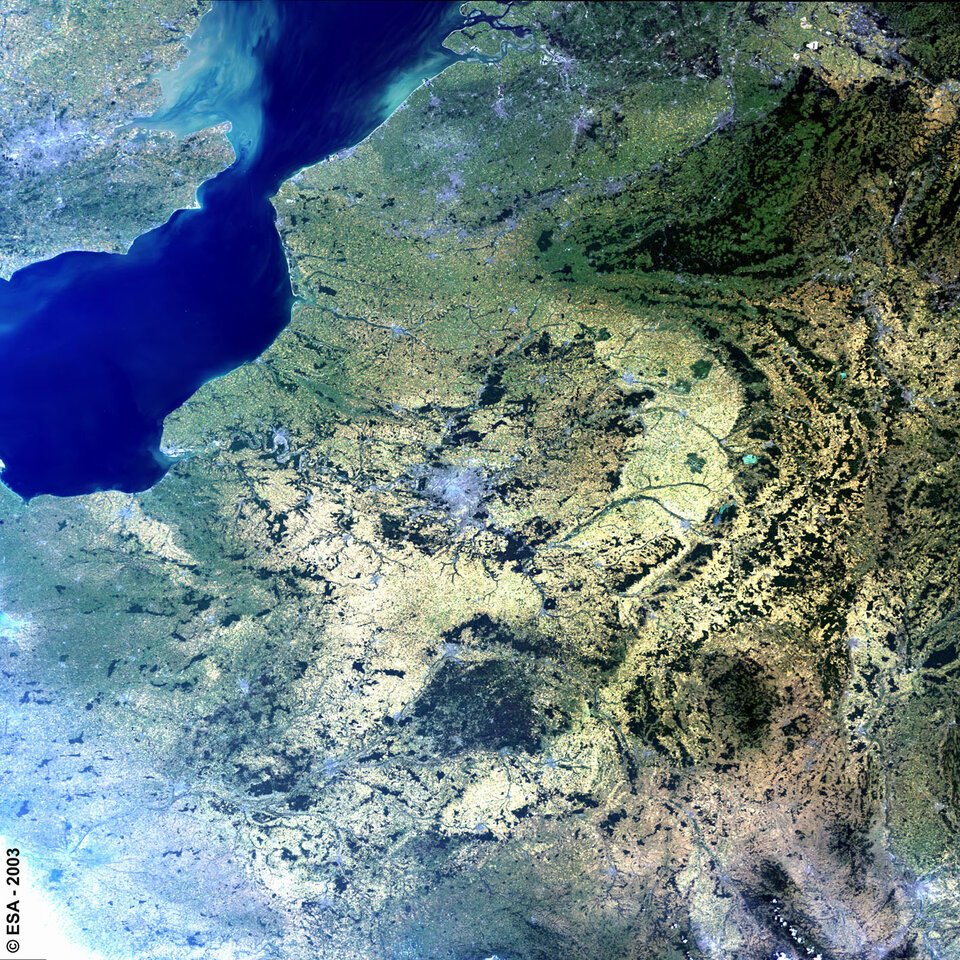ESA facts and figures
The European Space Agency (ESA) is Europe’s gateway to space. Its mission is to shape the development of Europe’s space capability and ensure that investment in space continues to deliver benefits to the citizens of Europe and the world.
ESA is an international organisation with 18 Member States. By coordinating the financial and intellectual resources of its members, it can undertake programmes and activities far beyond the scope of any single European country.
What does ESA do?
ESA’s job is to draw up the European space programme and carry it through. ESA's programmes are designed to find out more about Earth, its immediate space environment, our Solar System and the Universe, as well as to develop satellite-based technologies and services, and to promote European industries. ESA also works closely with space organisations outside Europe.
Who belongs to ESA?
Austria, Belgium, Czech Republic, Denmark, Finland, France, Germany, Greece, Ireland, Italy, Luxembourg, the Netherlands, Norway, Portugal, Spain, Sweden, Switzerland and the United Kingdom. Canada takes part in some projects under a Cooperation agreement.
Hungary, Romania and Poland are ‘European Cooperating States’. Estonia and Slovenia have recently signed cooperation agreements with ESA.

ESA's headquarters are in Paris which is where policies and programmes are decided. ESA also has sites in a number of European countries, each of which has different responsibilities:
- EAC, the European Astronauts Centre in Cologne, Germany;
- ESAC, the European Space Astronomy Centre, in Villafranca del Castillo, Madrid, Spain;
- ESOC, the European Space Operations Centre in Darmstadt, Germany;
- ESRIN, the ESA centre for Earth Observation, in Frascati, near Rome, Italy;
- ESTEC, the European Space Research and Technology Centre, Noordwijk, the Netherlands.
ESA also has liaison offices in Belgium, USA and Russia; a launch base in French Guiana and ground/tracking stations in various parts of the world.
How many people work for ESA?
In February 2008, the total number of staff working for ESA numbered 2043, from all the Member States and include scientists, engineers, information technology specialists and administrative personnel.
Where do ESA’s funds come from?
ESA’s mandatory activities (space science programmes and the general budget) are funded by a financial contribution from all the Agency’s Member States, calculated in accordance with each country’s gross national product. In addition, ESA conducts a number of optional programmes. Each Member State decides in which optional programme they wish to participate and the amount they wish to contribute.
How big is ESA’s budget?
ESA's budget for 2008 was €3028 million. ESA operates on the basis of geographical return, i.e. it invests in each Member State, through industrial contracts for space programmes, an amount more or less equivalent to each country’s contribution.
How much does each European spend on ESA?
European per capita investment in space is very little. On average, every citizen of an ESA Member State pays, in taxes for expenditure on space, about the same as the price of a cinema ticket (in USA, investment in civilian space activities is almost four times as much).
How does ESA operate?
The Council is ESA's governing body and provides the basic policy guidelines within which ESA develops the European space programme. Each Member State is represented on the Council and has one vote, regardless of its size or financial contribution.
ESA is headed by a Director General who is elected by the Council every four years. Each individual research sector has its own Directorate and reports directly to the Director General. The present Director General of ESA is Jean-Jacques Dordain.
For more information:
Communication and Knowledge Department
European Space Agency
8-10 rue Mario Nikis
75738 Paris
Cedex 15
France
Tel: + 33 1 5369 7155
Fax: + 33 1 5369 7690








